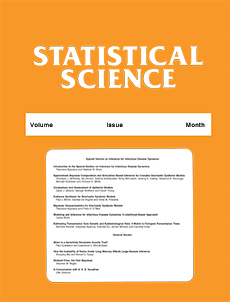Abstract
Irving John Good was born in London on December 9, 1916. He attended the Haberdashers' "secondary" School, distinguishing himself as a mathematical prodigy, and then entered Jesus College at Cambridge University in 1935. He studied under G. H. Hardy and A. S. Besicovitch, obtaining his Ph.D. in 1941, and was the Cambridgeshire chess champion in 1939. Then he was called into World War II service as a cryptanalyst at Bletchley Park, working partly as the main statistician in teams led by Alan Turing and, later, by the British chess champion C. H. O'D. Alexander and by M. H. A. Newman. The work employed early electromagnetic and electronic computers and applied Bayesian statistics relevant to reading the two main secret ciphers used by the German Army and Navy, providing crucial intelligence to the Allies. After the war, Good taught briefly at Manchester University and made a few suggestions for the electronic computer project. He was then drawn back into classified work for the British government. During that time he obtained an Sc.D. from Cambridge and a D.Sc. from Oxford. In 1967 he came to the United States, becoming a University Distinguished Professor at Virginia Polytechnic Institute. Officially he retired in 1994, but in practice he can be found at work late in the day when the snow isn't deep.
Citation
David L. Banks. "A conversation with I. J. Good." Statist. Sci. 11 (1) 1 - 19, February 1996. https://doi.org/10.1214/ss/1032209661
Information





